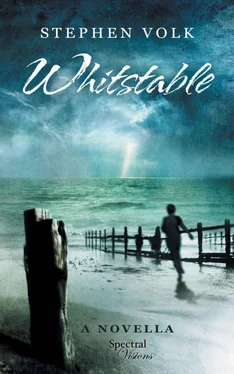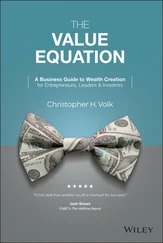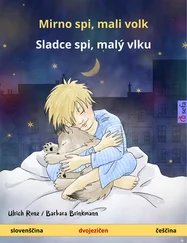Les Gledhill was one of them, strands of long wet hair hanging from his hood, cheekbones shiny and doll-like over his damp beard. The stalker was bagged up and marked at the quayside beyond the parked cars, some of it wrapped in newspaper. No airs and graces. “5 Dover sole’s £1.” The misappropriated apostrophe was almost obligatory. Others who’d arrived first were helping themselves, and Gledhill was taking their cash in a wet, outstretched palm, skin peeled pink from the scouring weather.
Seeing Cushing out of the corner of his eye, Gledhill at first attempted to ignore him. A transistor radio set on an empty oil drum was playing the recent Christmas hit, ‘Grandad’ by Clive Dunn. Unable to avoid doing so any longer, Gledhill stared at him as he rinsed his hands under a cold water tap on the quayside and wiped them in a towel. The DJ on the radio switched to the current single at the top of the charts, George Harrison singing ‘My Sweet Lord’.
“What do you have today?” Cushing presented himself as bright-eyed and bushy tailed.
“Depends what you’re after.”
“Oh, I think I’m open to suggestions.” Cushing smiled broadly.
“Well. Got a load of dabs,” Gledhill said, forcing a retaliatory smile to match. “Sprats. Herrings. Good winter fish. Dover sole. Skate. Nice skate backbone, if you know what to do with it.” His hands looked frozen and painful to the older man as he watched him turn to serve an elderly woman who had the right change. A great deal of nattering was going on between the other customers and the other fisherman—quite sprightly, good-natured banter—and to an onlooker, this conversation would seem no different.
Cushing adjusted his scarf, scratched the side of his chin and pointed at one of the packages lined up before him. “That one will do perfectly.”
“Pound.”
“Thank you.” Cushing happily delved into his purse.
Gledhill picked up the fish in newspaper and handed it to him, and as he did so Cushing saw the blue blur of an old tattoo on the back of his wrist, together with blue dots on his finger joints.
“You know, I was reading the other day…” He placed a pound note in the other man’s palm. “The fish, it’s the old symbol of Christianity. Older even than the cross.”
“Fascinating,” Gledhill said.
“Yes, it is, rather. Some people say religion has lost its way, but we are all God’s children, when all is said and done. Whether we choose to see that or not. Don’t you think?”
“You’ve got a bargain there, squire. I’d go home very happy if I were you.”
Turning his back, Gledhill went back to the tap of ice cold water and washed his red raw hands with the thoroughness of a surgeon. Cushing had researched surgeon’s methods for the Frankenstein films and it was the kind of thing he watched and made a mental note of, habitually. He found it interesting, vital, that there were telltale rituals and practices that made a profession look authentic, or inauthentic if wrong. It was essential to make the audience believe in the part one was playing, however ludicrous the part may be on paper. That was one’s job. That was why they called it ‘make believe’. Make. Believe.
Cushing waited.
Believe in yourself, Peter…
“Anything else you want, mate?” Gledhill turned his head and stared at the old man. “Apart from the Dover sole?”
Peter Cushing decided he would not be hurried. Why should he be?
“Let me see…”
He lingered. And the more he lingered the more he realised he was enjoying the discomfort his lingering engendered.
Les Gledhill did not do anything so obvious as a quick, shifty look towards his colleagues to reveal his unease. He would never have been that blatant. Nor did he become twitchy or self-conscious in any way. In fact his motions became slower and more considered. That, in itself, told a story—that the very presence of the old man in wellington boots made him uneasy. And he didn’t like it. A person who got a certain thrill from the control of others seldom enjoyed the feeling that someone else had control of him.
“Have you ever tasted oysters, Mr Cushing?” Gledhill picked up one of the shelled creatures from a plastic bucket in front of him.
“I thought the oysters round here had all succumbed to disease and pollution.”
“Not if you know where to look. I think of it as a hobby. Go out on a Sunday. Maybe get a hundred. You haven’t answered my question. Sir.” His intention was to intimidate, rather than be intimidated. That much was clear.
“My preference is towards plain food.”
“Then you don’t know what you’re missing. Marvellous stuff.” Gledhill took a knife from a leather satchel. It was a short, stubby one with a curve in the blade. “You break them open.” Metal scraped against the shell. He turned the object in his hand and opened it as if it were hinged. “Dab of vinegar if you prefer. Or just as it comes.” He ran the knife under the slimy-looking bivalve, cutting its sinewy attachment. It sat in its juices. “Then into the mouth they go.” He slid it off the half-shell onto his tongue, savouring it for a second or two, no longer, then swallowed. “One bite. Two at the most. Then down like silk. Nectar. Nothing like it.”
“Not for me.”
“Not for everybody, that’s for sure. Some people find it repulsive. Some can’t even bear the idea and run a mile. But to gourmets, those who appreciate the good things in life, well… they’re a little taste of Heaven.” Gledhill’s eye was steady again. Unblinking. “Acquired taste, of course…”
“If you say so.”
“Don’t knock it ‘til you try it. As they say.”
“Something eaten whilst it is still alive, simply in order to give a person pleasure? I find that rather… obscene.”
“In a way. In another way, it’s the peak of civilized behaviour. The stuff of banquets and kings. Of aristocracy and riches and palaces. The supreme indulgence. The Romans introduced them here two thousand years ago. Long ago as the time of Christ. Makes you think, doesn’t it?”
“Perhaps.”
“Lot of algae and low in salinity, the Thames Estuary. Knew a thing or two, those Romans.” He tossed away the empty shell into a bucket half-full of them, shortly to add to the ‘cultch’ bed upon which the ‘spat’ of the next generation would settle. “Besides. If we humans don’t live for pleasure, what do we live for?”
Cushing thought for a moment.
“Love?” he suggested. But really it was nothing like a question, to his mind.
Gledhill gave a snort, as if it were a bad joke, and wiped his hands in the grubby towel.
“Anything else I can do for you, sir? Or will that be all?”
“Actually there is one thing.” Cushing was careful to maintain a matter-of-fact air. “I’m going to a matinee at the Oxford Picture House this afternoon. I rather thought you might like to join me.”
Gledhill did not look away. “I don’t like going to the cinema as a rule. Not in the daytime.”
“Don’t tell me you’re afraid of the dark?” Cushing’s wit fell upon deaf ears. “I’m sure you can make an exception.”
“I’m busy.”
“I think not. Your working day is evidently over.”
“I didn’t say I was working, I said I was busy.”
“Oh. That’s a shame.” Cushing feigned disappointment. “It really is a shame. Because I’ve been to see your ex-wife and son, you see. Yes. Sue and I had a most edifying chat, and I thought you might be interested in what she had to say. It was quite—what can I say? Quite—special. I’m being dreadfully presumptuous. I shall go alone.” He placed the wrapped Dover sole deep in his shopping basket and walked away a few steps before turning back, as if the next thing he said was a mere afterthought. “I believe the main feature commences at half past two. I do so hate missing the start of a picture, don’t you? You can’t really enjoy a story unless you see it from the beginning, right through to the bitter end. Don’t you find?”
Читать дальше












